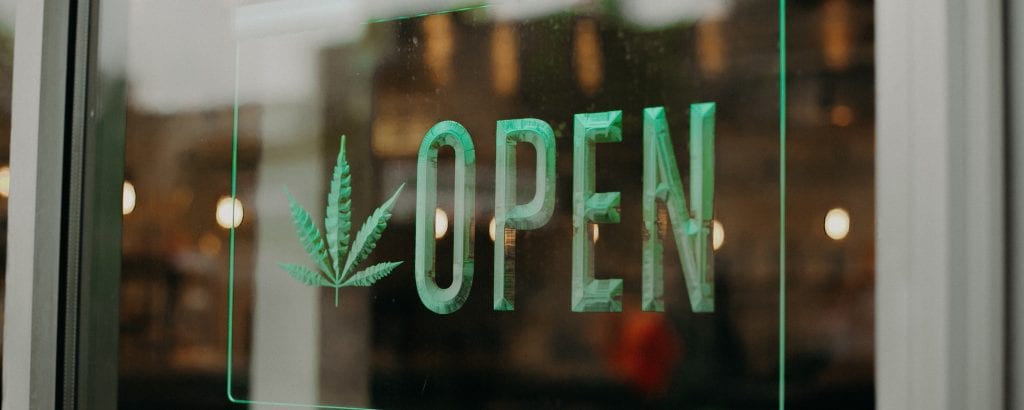The legal use of marijuana is a hotly debated topic nationwide. The laws that address its use not only change by state but continually evolve as states amend or adopt new laws. Employers need to be aware of these changing laws and how they affect their workers and their company policies.
A worker on marijuana could pose serious safety risks, like operating machinery while high, and companies don’t have the means to determine worker culpability if an accident occurs. Unlike alcohol, there is no test for recent marijuana use or impairment.
The obvious answer is to have a marijuana-use policy in place, right? Not so fast. Laws for how marijuana can be used, e.g., medically, recreationally or both, vary drastically by state and it is completely illegal in the eyes of the federal government. Mitigating risk requires being knowledgeable about what you can and can’t do with employees who use legal marijuana and making sure employees know the consequences.
State Law Overview
State laws differ significantly on how marijuana can be used, whether for medical or recreational purposes, and how its use might be addressed. The one clear exception for all is state laws can’t contradict federal laws. For example, employees cannot drive a federal vehicle under the influence of any substances, including prescription medications and legal medical marijuana. Otherwise, how you deal with employees who use medical or recreational marijuana really depends on where your business is located.
Medical Marijuana Use
As of April 24, 2023, 38 states, three territories and the District of Columbia, have legalized marijuana for medical use due to its ability to treat a variety of ailments. Laws vary on which conditions qualify for legal use, how much marijuana can be possessed at one time, how it can be consumed and whether a qualified patient may grow their own. Some states even have laws allowing cardholders from other states to legally use marijuana for medical reasons, even if it is illegal in the state they currently work or reside in. The takeaway here is to know which laws exist in your state and if you have any employees who would be protected as a cardholder in your state or because they hold a card from another state.
Recreational Marijuana Use
Recreational marijuana use is a whole other animal. The laws surrounding recreational use change by the day. As of June 1, 2023, 23 states, two territories and the District of Columbia have enacted measures to regulate cannabis for adult non medical use. While laws do not require employers to allow possession, use or for employees to be intoxicated at work, some states protect employees from legal, off-duty conduct. Employers in Illinois cannot penalize workers for using marijuana outside of work. California recently followed Illinois’ lead by passing a bill, which took effect January 2023, from penalizing workers for using marijuana during their off-duty hours. Previously, California workers weren’t protected by employer marijuana-use policies even though recreational use has been legal in the state since 2016, according to SHRM. Seeking legal counsel is the best way to deal with employees and recreational marijuana use.
How Marijuana Laws Affect Employers
Employers need to understand how their state’s laws affect their employment policies, especially when it comes to medical marijuana.
Here are two widely different state medical marijuana laws:
- In Arizona, patients with qualifying conditions who are likely to experience benefits from marijuana may receive a medical marijuana registration identification card. Employees cannot be punished for positive drug tests unless they used, possessed or were impaired by marijuana at the place of employment or during working hours.
- In Colorado, the state upheld the termination of an employee who tested positive for marijuana despite having used the drug off-duty to treat a legitimate debilitating medical condition. The state also held that employees who consume medical marijuana, which is permitted by state law but is unlawful under federal law, are not protected by the state statute. However a bill was introduced in 2022 to prohibit employer adverse reaction to employee marijuana use.
Marijuana and the ADA
To make marijuana-use policies even more difficult to navigate, the use of medical marijuana could be interpreted as being protected under the American with Disabilities Act (ADA). Currently, illegal drug use (including marijuana) is not protected under the ADA but that doesn’t mean states aren’t making accommodations for medical marijuana use.
Some states have interpreted their anti-discrimination laws as requiring employers to determine whether a reasonable accommodation can be made for medical marijuana users. Keep in mind, this all depends on facts and locations. Other states have found that nothing in their medical marijuana law establishes a duty to accommodate medical marijuana users.
In states where medical marijuana is seen as a legal, prescribed medication, employers still can require employees to report its use, especially if it will impair their ability to perform the essential functions of their job or pose a safety risk. For example, as mentioned above, employees may not operate a federal vehicle under the influence of any medication, legal or not.
Referring to the cardholder protections and protecting cardholders from other states – refusing to hire an employee or terminating one based solely on a positive marijuana test is not allowed.
What about CBD?
CBD is a component of marijuana, but it does not cause a buzz or high. Products containing CBD can be found nearly everywhere, from health food stores to gas stations and its use is virtually unregulated at this point. Yet be aware, it could cause a positive drug test as small amounts of THC may legally be present in CBD products.
Best Practices for Creating a Drug Testing Policy
When creating a drug testing policy at your workplace, start by considering whether a drug test is necessary. Will your employees pose a safety risk if they have used drugs? Be sure to distribute the policy and obtain consent before testing. Establish clear, observable criteria for reasonable suspicion and apply the policy consistently.
Answer these questions when establishing a written policy:
- Who – which employees will be required to undergo a drug test? Some companies only test those employees with safety-sensitive positions.
- When – will the testing be required pre-employment, annually, after an incident occurs or all of the above?
- Where – will testing occur onsite or at a state-certified lab?
- Why – why is your company choosing to drug test employees? Will you test employees when you have a reasonable suspicion for drug use? Or will you test employees who return from treatment?
- How – what types of tests will you use? Drugs can be detected through blood, hair or urine tests.
What about Marijuana Use in Field Services Positions?
Drug testing is not required for private construction or other field services positions. The exception is those construction positions that fall under a specific law or agency, like the Department of Transportation, Department of Defense, the Nuclear Regulatory Commission or other federal contractors.
The Drug-Free Workplace Act of 1988 states a drug-free policy is required for organizations receiving federal contracts of $100,000 or more or a federal grant of any size.
Get Professional Help
Regulating the use of legalized marijuana is a difficult topic to navigate. Since laws frequently change, the best option is to rely on legal advice, like from Arcoro partner myHRCounsel, before reprimanding or terminating an employee who tests positive for marijuana. Legal partners can also help guide you in writing written policies, which can protect your company and mitigate the risk of lawsuits. Employers could provide training that explains policies through the Learning Management System. Policies also need to be clearly explained and acknowledged during onboarding and recruiting.
Together, Arcoro and myHRcounsel can offer you unlimited access to employment lawyers and more than 100 legal documents, plus legally completed employee handbooks and updates. Get compliance support plus legally backed answers to any HR question at a price that’s predictable and affordable.

Contact Arcoro today for more information.




